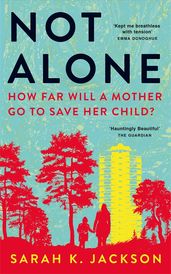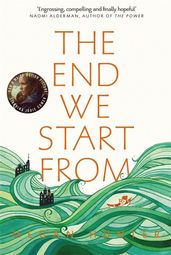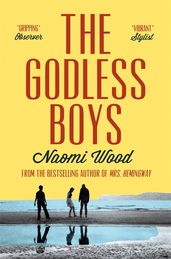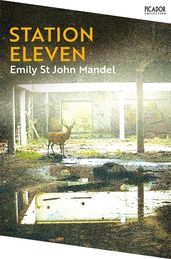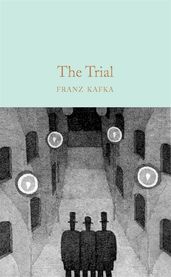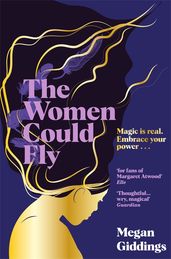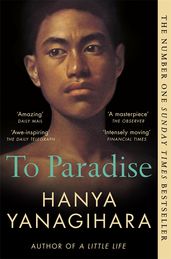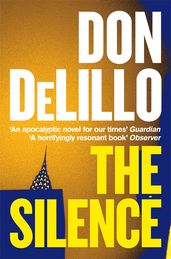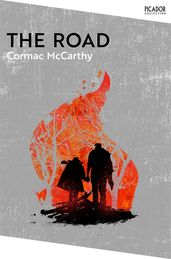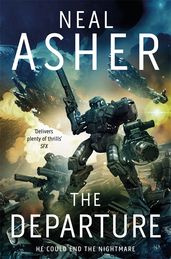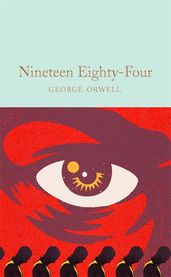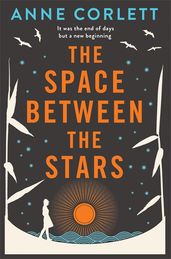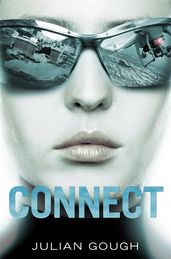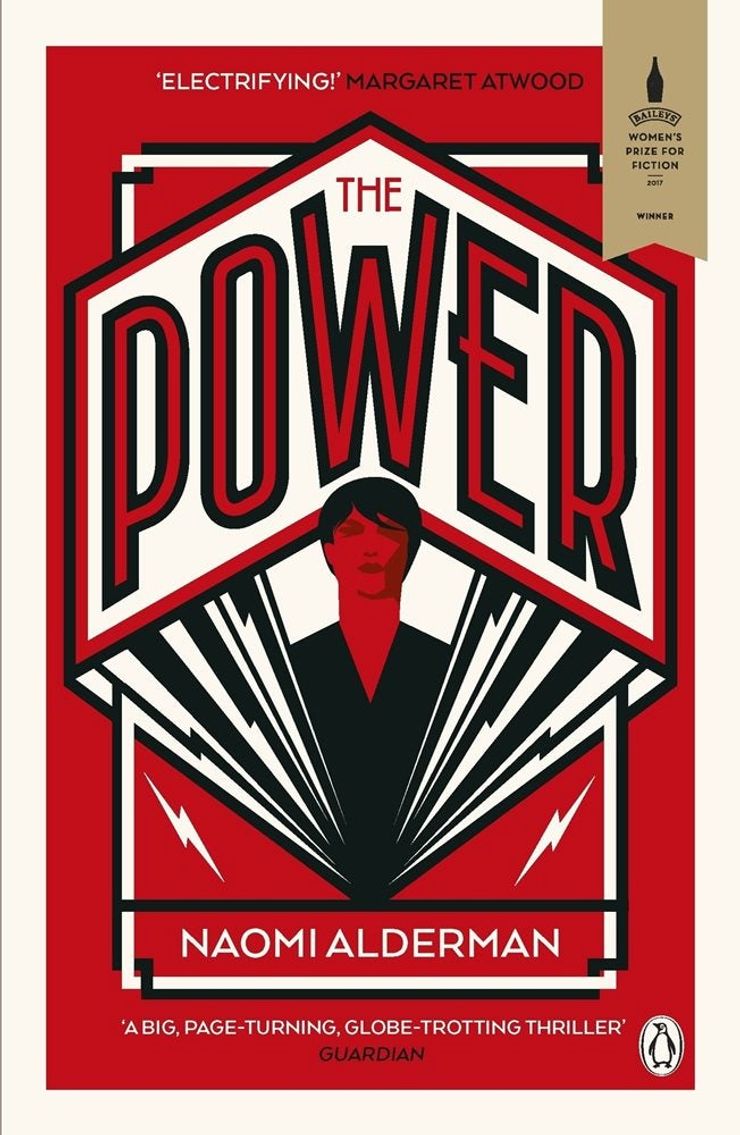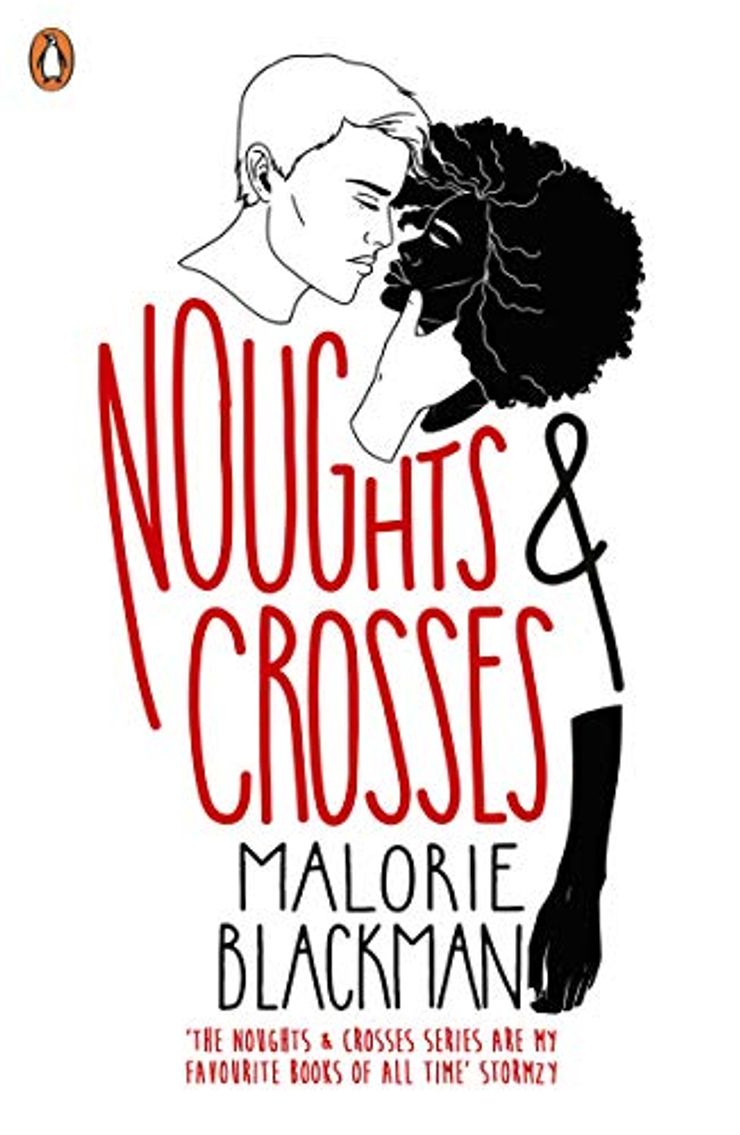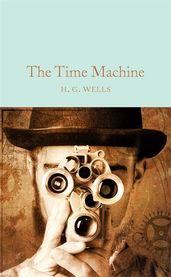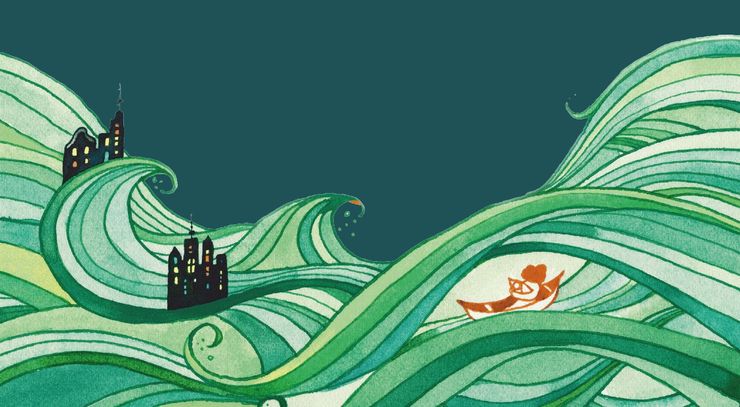30 of the best dystopian novels of all time
From classic authors such as George Orwell and H. G. Wells to contemporary fiction, these are the best dystopian novels of all time.

Dystopian novels fascinate us because they draw on aspects of our own world. Mirroring elements of society, the environment, religion, politics or technology, the best dystopian books present a world that, though eerily familiar, is much more frightening than our own.
From the terrifying misogynist dystopia of Margaret Atwood's The Handmaid’s Tale, to a world changed forever by a deadly pandemic in Emily St. John Mandel's dystopian masterpiece Station Eleven, dystopian fiction often carries a warning for the future. For those searching for their next dystopian read, here we share some of the most sinister, and some might argue prescient, dystopian novels ever written.
Conform
by Ariel Sullivan
Born to an Elite family but marked as different by a society that demands conformity, Emeline is not left with many options. Offered a pro-creation contract with a high-standing member of the Elite, she finds herself torn between her proposed mate and another man who lives on the margins of society. As the disempowered and disadvantaged rise in rebellion, Emeline must decide which side of the revolution she is on. Dive headlong into this thrilling debut that explores ideological control and women's bodily autonomy.
Juice
by Tim Winton
Alone, exhausted, and scarred by what they’ve seen on their travels, a man and child search for safety in a sunburned and stony desert. Chancing upon an abandoned mine, the man knows that this desolate place is their best bet for shelter, even though they have no idea who or what lurks in the mine’s depths. Set in an apocalyptic dystopian future, in Juice Tim Winton asks: how far will humans go to survive when the world has been turned upside down?
Not Alone
by Sarah K Jackson
In Not Alone, Sarah K. Jackson combines heart-stopping adventure, with a deeply felt and vividly imagined central bond between mother and child as they fend for themselves from the confines of their flat. Five years ago, in a world close to our own, a toxic microplastics storm killed most of the population. Now Katie must forage and hunt the few surviving animals for meat as she attempts to feed her little boy. Harry is kept indoors at all costs, never venturing beyond the entrance to their building, never knowing the truth of how he came to call this place home. This stunning debut is about love, trust, hope and the looming threat facing us all.
The End We Start From
by Megan Hunter
As apocalyptic floods submerge London, a woman gives birth to her first child. Soon the family are forced to flee in search of safety, moving from place to place on a journey of fear and wonder, as the baby grows and thrives against the odds. Megan Hunter's beautiful, spare prose paints an imagined future which is terrifying in its realism.
‘Virginia Woolf does cli-fi . . . tremendous’
The Godless Boys
by Naomi Wood
Imagine an alternative England, where the Church controls the country and non-believers have been exiled to a remote island. On the Island, a fierce group of boys patrols the community, searching for signs of faith and punishing any believers. When a new girl appears, arriving from the mainland to search for her long-lost mother, the gang is split: one boy falls in love with her, another seeks violent revenge. The struggle between them will change everything. The Godless Boys is the astounding literary debut by Naomi Wood.
Station Eleven
by Emily St John Mandel
One of our favourite dystopian novels of recent years, Station Eleven moves backwards and forwards in time, presenting the recognisable years just before a flu epidemic brought about the collapse of civilisation alongside the strange and altered world that exists twenty years after. It’s a novel that asks questions about art and fame and about the relationships that sustain us through anything – even the end of the world.
The Trial
by Franz Kafka
Kafka creates a nightmarish bureaucracy which traps his protagonist in an unlawful conviction in this bleak and frightening dystopian fiction. On his thirtieth birthday Joseph K is arrested for an unknown crime. He has no idea what he has done wrong, and he is never told what he has been charged with. As he fights to prove his innocence he struggles with the invisible Law and the untouchable Court, and the course of his life is changed forever.
The Women Could Fly
by Megan Giddings
Josephine Thomas has heard every possible theory about her mother’s disappearance. The most worrying is that she is a witch – an accusation a woman, and especially a Black woman, can find herself on trial for. Jo's own future is also in doubt. The State mandates that all women marry by the age of thirty or enrol in a registry that allows them to be monitored. With her ability to control her life on the line, she feels as if she has never understood her mother more, and so vows to honour a final request from her mother's will. This powerful work of dystopian speculative fiction explores the limits women face – and the powers they have to transgress and transcend them.
‘A feminist dystopian epic about a world where women’s life choices are policed and female power and autonomy are the most dangerous forces of all . . . a hypnotic blend of enchantment and outrage. I could not love this novel more. ’
— Jessamine Chan
The Family Experiment
by John Marrs
The world's population is soaring, creating overcrowded cities and an economic crisis. A growing number of people can no longer afford to start or raise a family. But for those desperate to experience parenthood, there is an alternative: a monthly subscription fee whereby clients can create a virtual child. To launch this new initiative, the company behind Virtual Children has created a reality TV show. The prize: the right to keep their virtual child or risk it all for the chance of a real baby. This much-anticipated novel from John Marrs is a dark and twisted thriller about the ultimate 'tamagotchi'.
The Marriage Act
by John Marrs
Set in Britain in the near future, a right-wing government believes the answer to society's ills is the Sanctity of Marriage Act, where marriage is the expectation and single citizens are shunned. To ensure compliance, the government keeps a watchful eye and uses every tool in its arsenal to ensure everyone will love, honour and obey . . . But four couples are about to discover just how difficult relationships can be when someone else is watching. From the author of The One, now an eight-part Netflix series, John Marrs' The Marriage Act is a dystopian thriller packed full of twists.
To Paradise
by Hanya Yanagihara
To Paradise is in three symphonic sections: one set in 1890s New York, one in 1990s Manhattan, and one in the distinctly dystopian 2090s. This future world is governed both by plagues and totalitarian rule. The daughter of an influential scientist is trying to figure out how to live without him, whilst also trying to solve the riddle of her husband's tendency to vanish. These three parts make an enthralling whole: an examination of how different Americas coexist, with the rich and poor, the powerful and weak, the healthy and sick all linked by the desire to protect those they love from harm.
The Silence
by Don DeLillo
Don DeLillo's The Silence is a unique dystopian novel which, rather than delving into how humanity may struggle to survive in the aftermath of a disaster, focuses on the immediate moment an unpredictable crisis hits. Although it was begun before COVID-19 existed, it’s set at a time when a virus that emptied the streets is ‘fresh in the memory’ and an even greater disaster is about to strike. This is a dazzling short novel about what it means to be human in a time of crisis.
The Road
by Cormac McCarthy
A post-apocalyptic tale of a man and his son trying to survive by any means possible, Cormac McCarthy’s classic dystopian novel The Road is one of the most shocking, harrowing and bleak visions of the future ever created. The book was adapted into a BAFTA-nominated film starring Viggo Mortensen in 2009.
The Departure
by Neal Asher
The Committee enforces its despotic rule on a nightmarish Earth from the safety of the Argus Space Station. Too many people fighting for too few resources means corruption is rife, people are starving and the poor are policed by mechanized overseers and identity-reader guns. But the Committee still need twelve billion to die before stability can be returned, and they are prepared to take the carnage to a whole new level to reach their goal. The Departure is the first book in Neal Asher's near-future set Owner dystopian science fiction series.
Nineteen Eighty-Four
by George Orwell
One of the best known dystopian novels of all time, 1984 is George Orwell's terrifying vision of a totalitarian future in which everything and everyone is slave to a tyrannical regime lead by The Party. The novel has a fascinating history, from the phenomenon the book became on publication to the impact it has had on the English language. Dorian Lynskey explores the cultural history of 1984 in his remarkable book The Ministry of Truth.
Brown Girl in the Ring
by Nalo Hopkinson
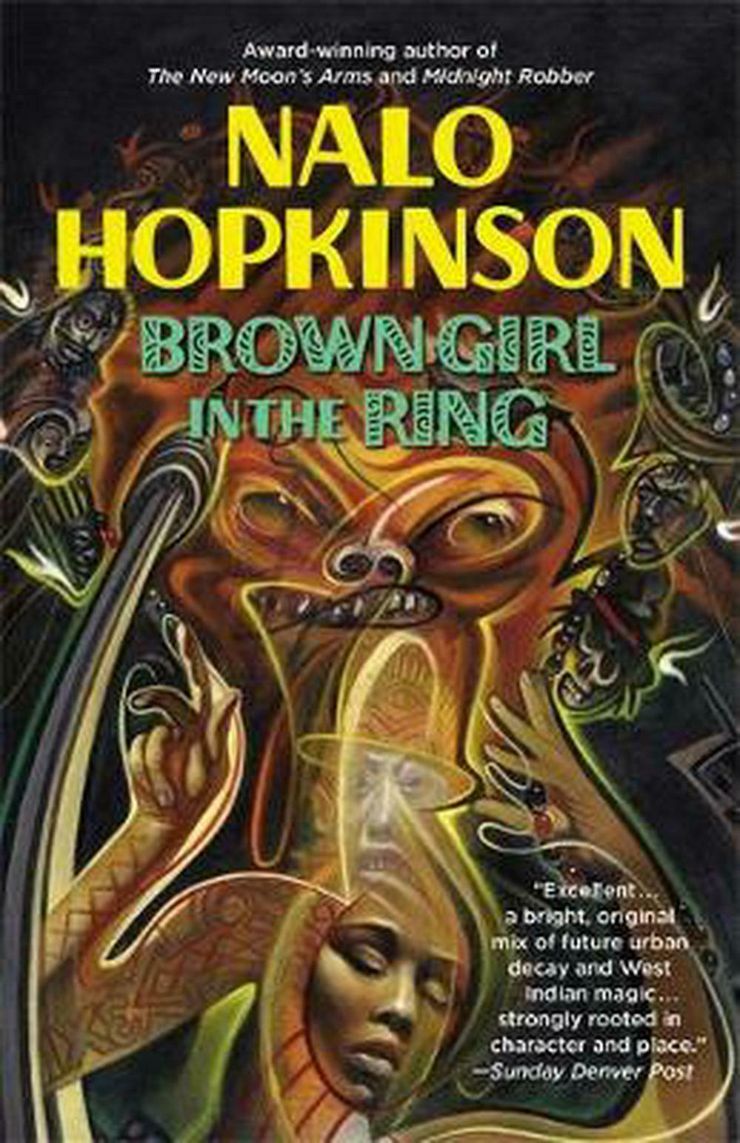
Combining Caribbean magic with bleak urban squalor, Brown Girl in the Ring is set in a decayed and dangerous future Toronto, where Ti-Jeanne must navigate the city streets with her new baby. The privileged have fled, leaving the citizens to barter, farm and discover lost herbal lore. Meanwhile, the rich need a fresh harvest of bodies, and nobody is safe. This award-winning 1998 fantasy was Nalo Hopkinson's first novel.
The Handmaid's Tale
by Margaret Atwood
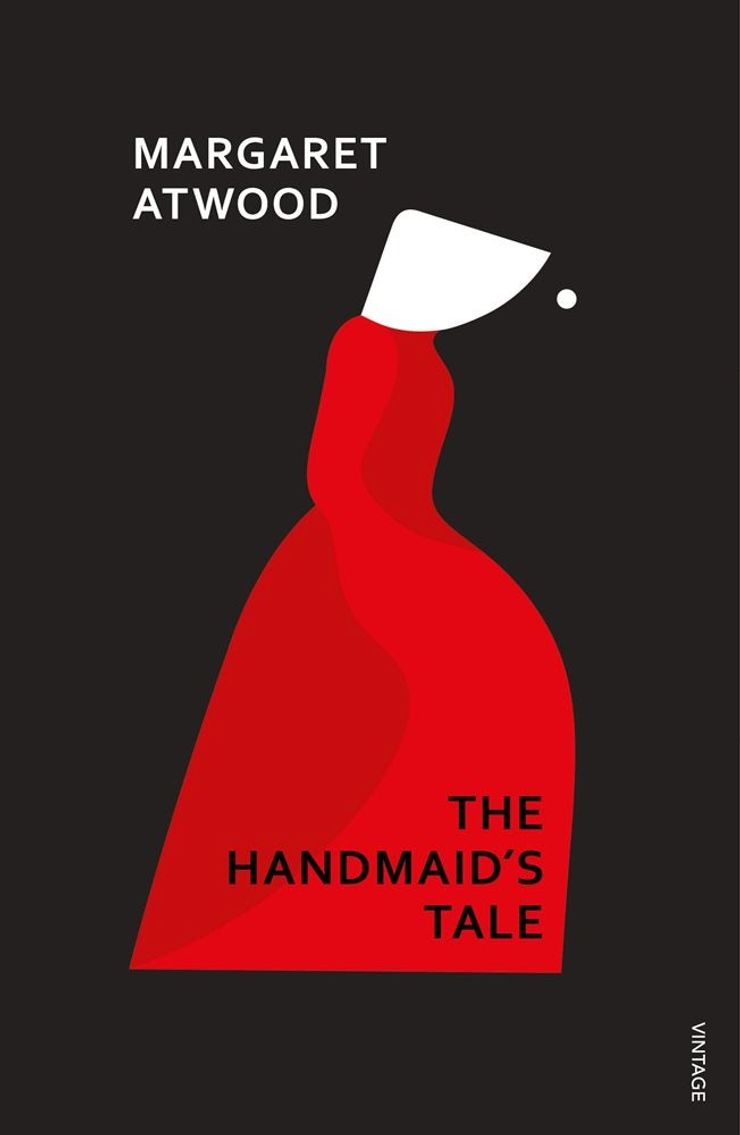
In this classic of feminist dystopian fiction, Margaret Atwood presents a world where women’s bodies are controlled by the state and 'handmaids' are forced to provide the families of the elite with children. The bestselling TV adaptation, starring Elisabeth Moss and Samira Wiley, has been nominated for multiple awards, and the fourth series is highly anticipated.
The Space Between the Stars
by Anne Corlett
Set in a universe devastated by a deadly virus, The Space between the Stars is an enthralling novel of love, the choices we make, and what it means to be human. Jamie Allenby wakes, alone, and realizes her fever has broken. But could everyone she knows be dead? Months earlier, Jamie had left her partner Daniel, mourning the miscarriage of their baby. She’d just had to get away, so took a job on a distant planet. Then the virus hit. If someone from her past is still alive – perhaps Daniel – she knows she must find a way to return. As she meets others seeking Earth, will Jamie will also get a second chance at happiness?
The Sin Eater
by Megan Campisi
Set in a thinly disguised 16th century England, The Sin Eater casts a dystopian eye on the past. When fourteen-year-old May is arrested for stealing a loaf of bread she is sentenced to become a Sin Eater, a devastating sentence that will see her shunned by society and exiled to the edge of town. For a Sin Eater hears the confessions of the dying and eats their sins as a funeral rite, and is believed to be stained by these sins. When May is called to hear the deathbed confessions of two of the Queen’s courtiers she hears whispers of a terrible rumour her invisibility allows her to investigate.
American War
by Omar El Akkad
It’s 2074 and America is once again devastated by civil war. Sarat has lost her father, her home, and is fighting for survival. She didn’t start this war, but she’s determined she’ll end it. This powerful debut novel imagines America in the grip of a deadly plague and riven by civil war as one family are caught in the middle. This dystopian book asks us to consider what might happen if America turned it’s most deadly policies and weapons on itself.
‘American War creates as haunting a post-apocalyptic universe as Cormac McCarthy did in The Road’
Connect
by Julian Gough
Naomi, a trailblazing biologist, is worried about the implications her work could have on the world, and the impact the world might have on her awkward son, Colt. Colt can code virtual realities our world hasn’t even thought of yet, but is so socially inept that he struggles to order takeaway pizza. Then, he sends his mother's research to a New York biotech conference. The fallout sees Colt’s absentee father return, backed by the secretive security organisation he heads, while the US government seeks both Naomi's research and Colt himself. As Colt begins a journey of self-discovery, Naomi will have to decide how far she'll go to protect her child.
Zone One
by Colson Whitehead
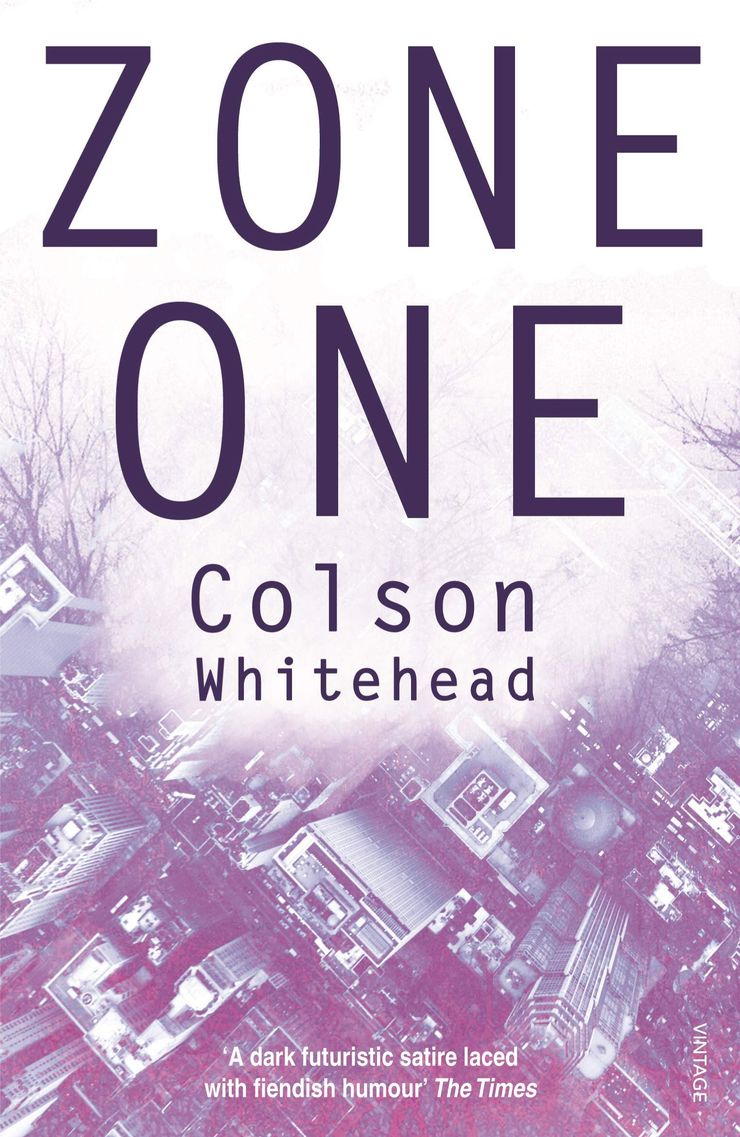
Pulitzer Prize-winning novelist Colson Whitehead was inspired to write this apocalyptic sci-fi novel because of his teenage fascination with the work of Stephen King and Issac Asimov. A plague has ravaged the planet, and the population is divided into the living and the living dead. Mark Spitz is working on a task force to clear the infested from ‘Zone One’, but things quickly go from bad to worse . . .
The Power
by Naomi Alderman
One day, young girls across the world wake up to discover they have ‘the power’ – an electrical charge they are able to inflict at their will. Able to ‘wake up’ this power in older women, suddenly the balance of world power has shifted and men are no longer in charge. A new world order quickly falls into place, but will things get any better? This is the feminist dystopian novel that Margaret Atwood called 'electrifying' and 'shocking'.
The Hunger Games Trilogy
by Suzanne Collins
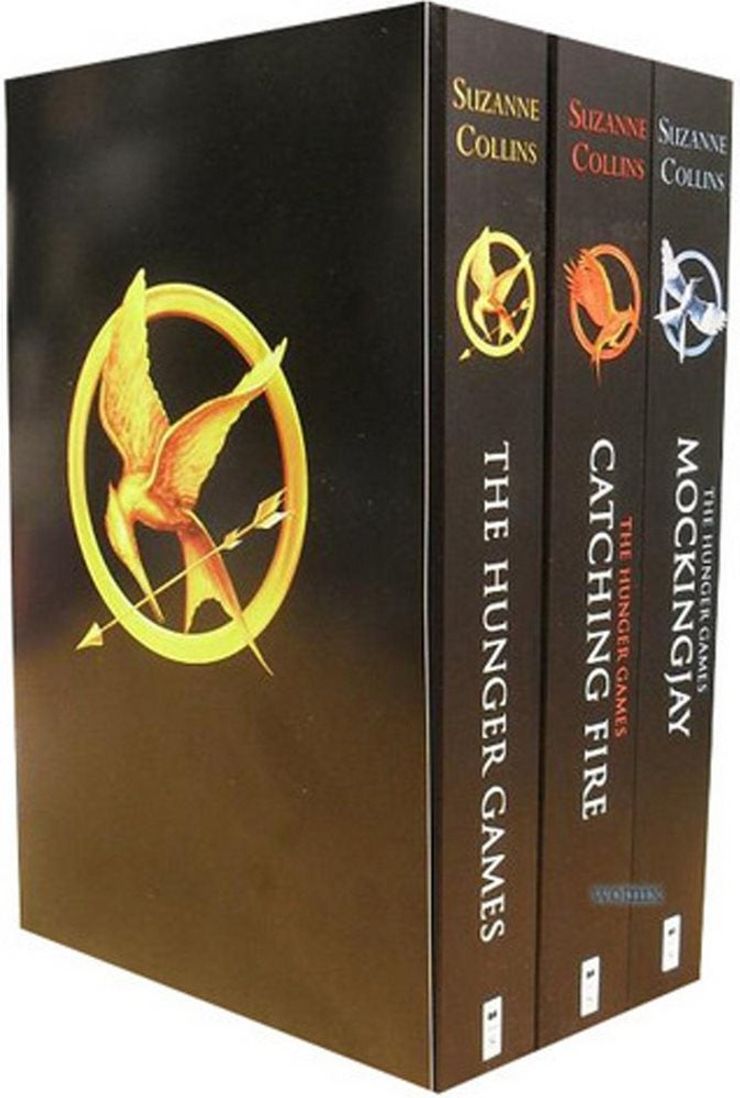
This bestselling dystopian fiction young adult trilogy was adapted into the smash hit film series which catapulted Jennifer Lawrence to stardom. Set in a dark vision of the near future, twelve boys and twelve girls are forced to take part in a brutal reality TV show where the only rule is kill or be killed. A prequel, The Ballad of Songbirds and Snakes, set sixty-four years before the events of the first book in the trilogy, was published in May 2020.
Never Let Me Go
by Kazuo Ishiguro
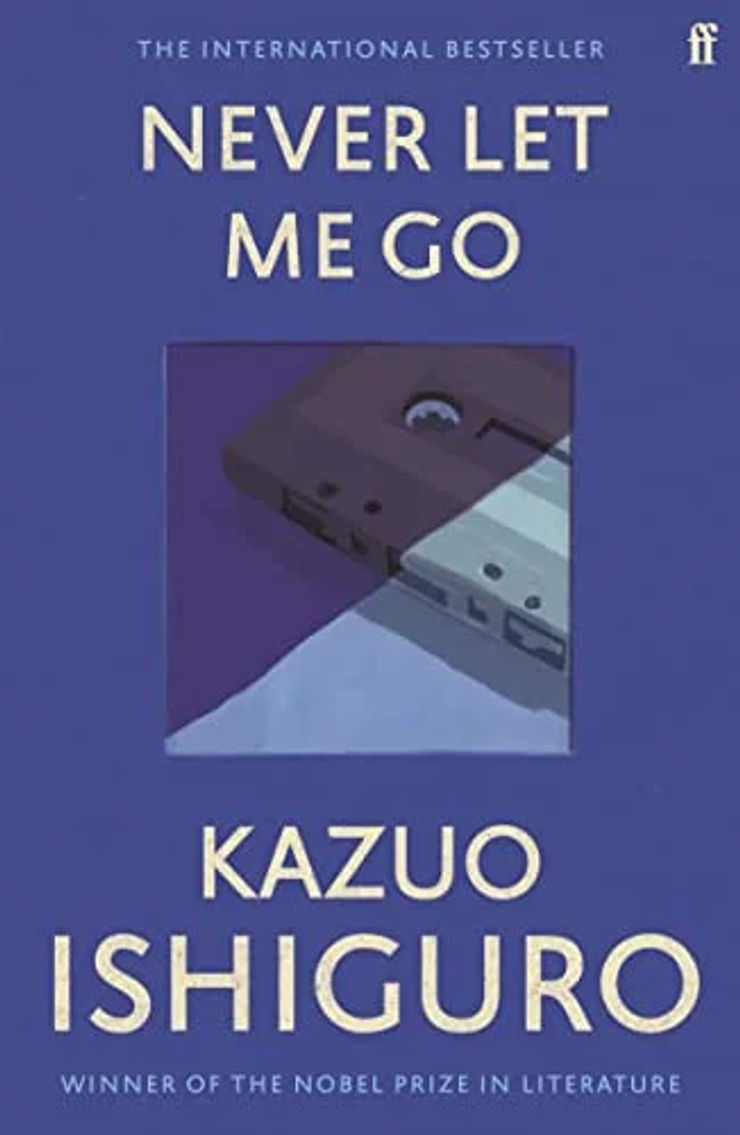
Shortlisted for the Booker Prize in 2005, Never Let Me Go breaks the boundaries of the literary novel. Hailsham seems like a pleasant English boarding school, far from the influences of the city. Its students are well tended and supported, trained in art and literature, and become just the sort of people the world wants them to be. But, curiously, they are taught nothing of the outside world and are allowed little contact with it. Kazuo Ishiguro beautifully paints a story of love, friendship and memory, charged throughout with a sense of the fragility of life.
A Clockwork Orange
Fifteen-year-old Alex likes lashings of ultraviolence. He and his gang of friends rob, kill and rape their way through a nightmarish future until the State puts a stop to his riotous excesses. But what will his re-education mean? A dystopian horror, a black comedy and an exploration of choice, A Clockwork Orange is also a work of exuberant invention which created a new language for its characters.
Brave New World
by Aldous Huxley
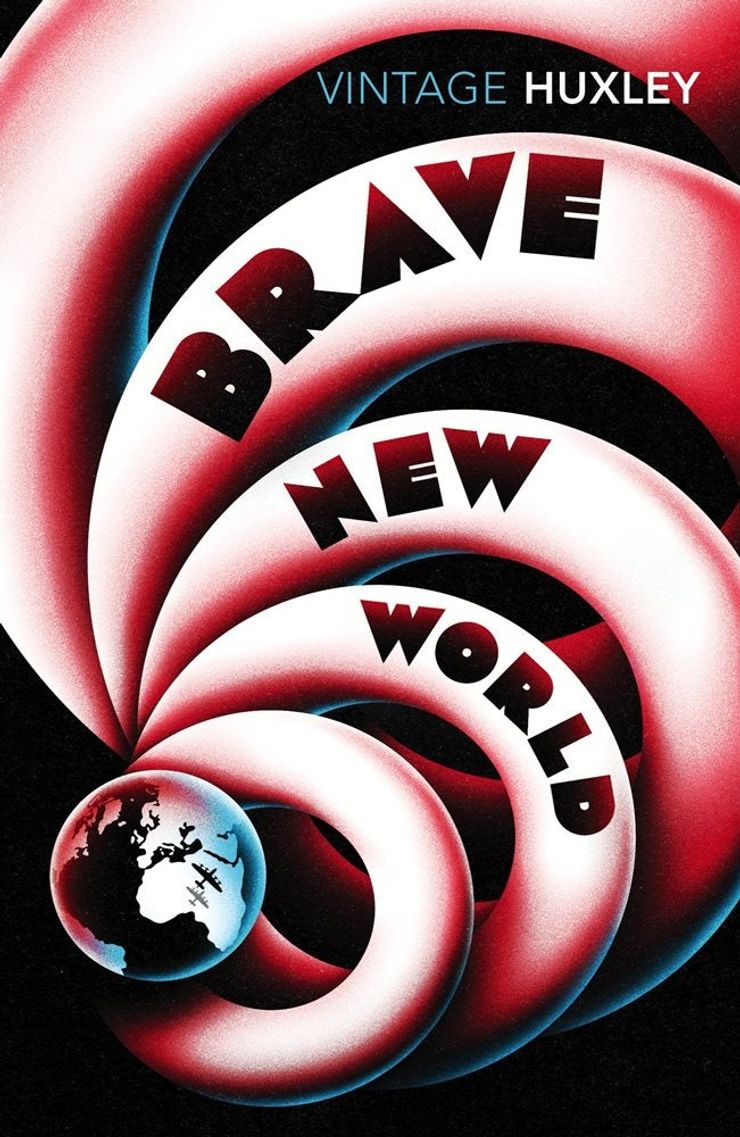
Heavily influenced by the science fiction writers, such as H.G. Wells, who went before him, Aldous Huxley presents a future where the World Controllers have created the ideal society in this classic dystopian book. All its members are happy consumers, kept docile with a sinister mix of genetic engineering, brainwashing and recreational sex and drugs.
Fahrenheit 451
by Ray Bradbury
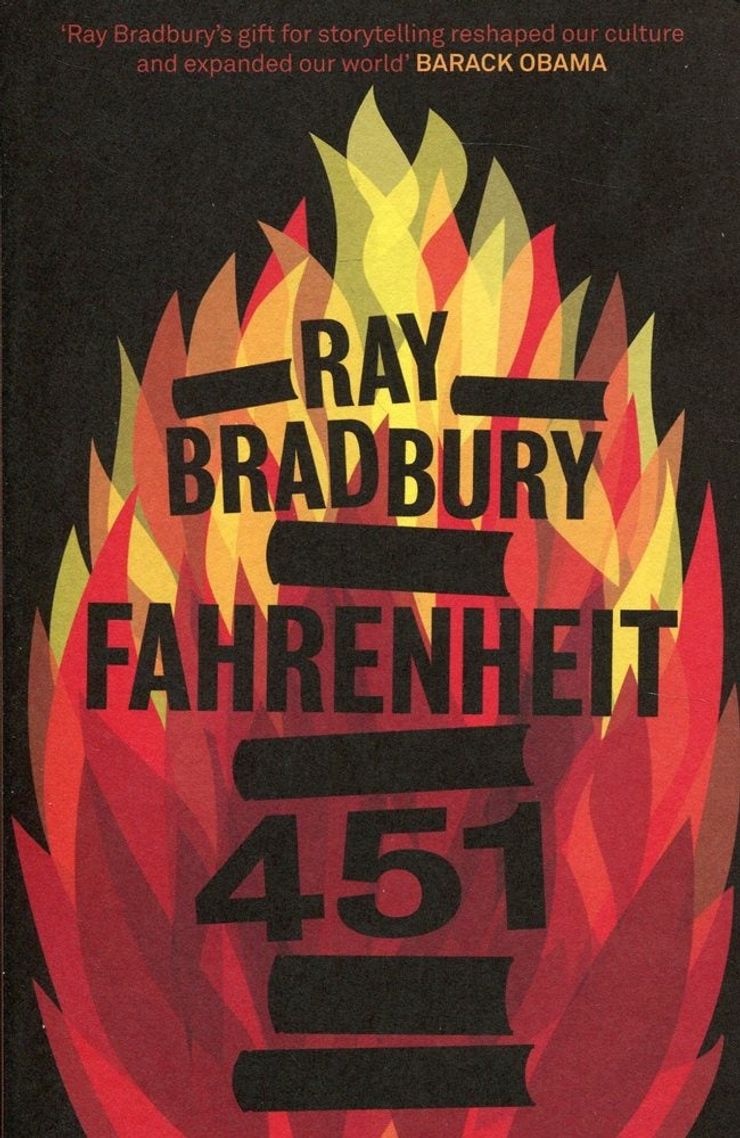
Possibly the most terrifying dystopian scenario for booklovers, Fahrenheit 451 is set in a not-too-distant future where books are burned and intellectual thought is illegal. Guy Montag’s job as a fireman means he is responsible for burning any books that are found, because they're considered the source of all discord and unhappiness. But everything changes when Guy's doubts start to grow.
Parable of the Sower
by Octavia E. Butler
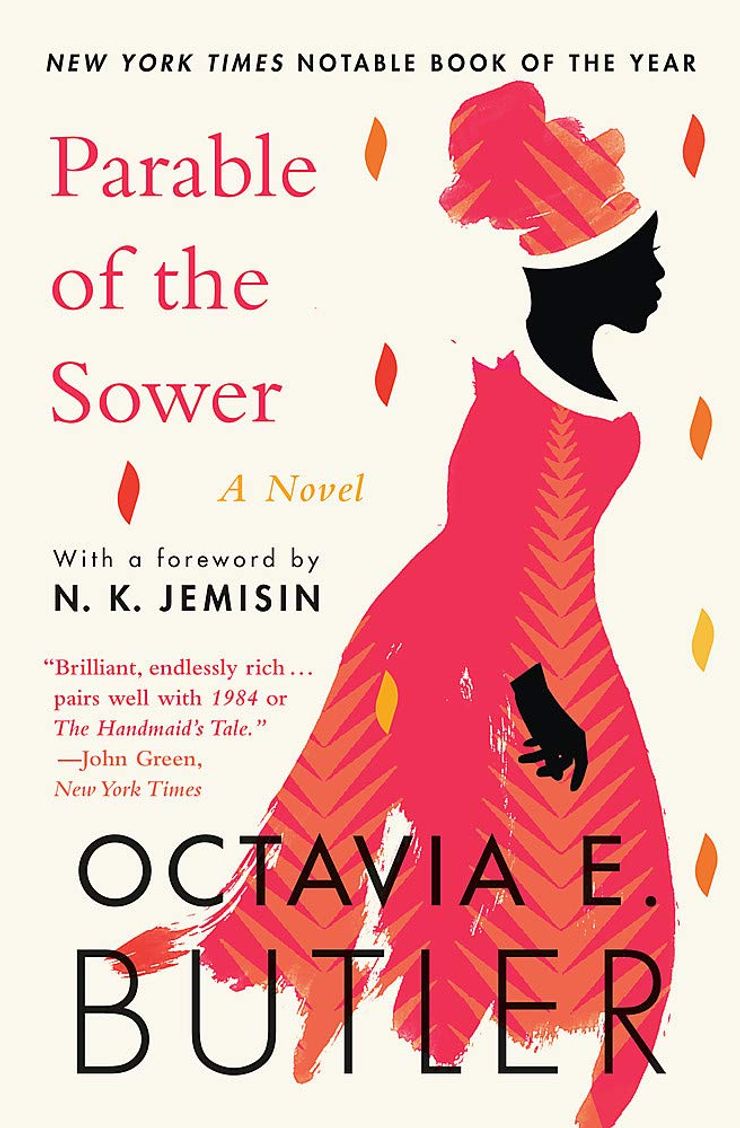
No list of the best sci-fi books is complete without Octavia Butler’s science fiction classic Parable of the Sower. Set in a dystopian Los Angeles in a crumbling America, Lauren Olamina struggles to survive in a world destroyed by drugs, disease and war as she battles with hyperempathy, a condition that makes her extraordinarily sensitive to the pain of others.
Noughts & Crosses
by Malorie Blackman
In the award-winning Noughts and Crosses sequence, Malorie Blackman creates a dystopian world in which the white Noughts are treated as an inferior race, while the black Crosses are born into privilege and perceived as superior in every sense. It follows Sephy and Callum, who, despite the friendship they have shared since they were children, are fated to be bitter enemies. Sephy is a Cross, dark-skinned, beautiful and the daughter of a powerful politician, while Callum is a Nought, white and poor, existing to serve Crosses and nothing more. But against all odds, star-crossed lovers Sephy and Callum choose each other.
The Time Machine
by H. G. Wells
One of the first portrayals of time-travel in literature, The Time Machine is a dystopian novel about a Victorian scientist who travels to the year 802,701 AD to find that humanity has descended into two distinct races, the charming but child-like Eloi and the sinister and dangerous Morlocks.
You also might like . . .
Everything Must Go
by Dorian Lynskey
For two millennia, Christians have looked forward to the end, haunted by the apocalyptic visions of the Biblical books of Daniel and Revelation. But for two centuries or more, these dark fantasies have given way to secular stories of how the world, our planet, or our species (or all of the above) might come to an end. Dorian Lynskey's fascinating book explores the endings that we have read, listened to or watched over the last two dozen decades, whether they be by the death and destruction of a nuclear holocaust or collision with a meteor or comet, devastating epidemic or takeover by robots or computers.
If you can't get enough of terrifying potential futures in prose, here Emma shares her recommendations for the best apocalyptic books:


